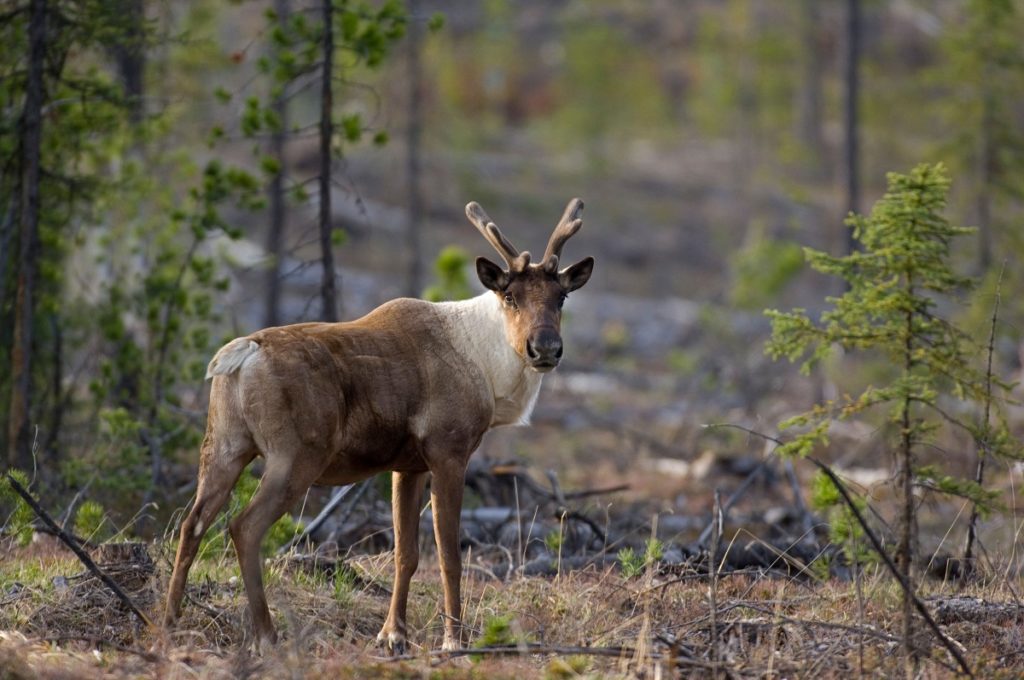We are in the midst of a global biodiversity crisis, caused mainly by changes in land and sea use, including forest destruction and fragmentation. Since 1970, the planet has lost 60 percent of its vertebrate wildlife populations, leading experts to warn that the annihilation of wildlife threatens civilization. Scientists predict this crisis will become even more dire, with the United Nations’ Global Assessment Report on Biodiversity and Ecosystem Services finding that a million species face extinction. This biodiversity crisis is endangering not only wildlife, but humans as well. We depend on biodiversity for the food we eat, the water we drink, the air we breathe, the medicines we take, and stable weather patterns, among other benefits.
Unfortunately, logging for biomass energy is accelerating the threat to forests and wildlife while scientists are calling for “transformative change”—not business as usual—to save our planet and ourselves. As the world’s top importer and subsidizer of biomass, the UK plays a huge role in this destruction.
Logging to feed the UK biomass energy market is harming forests around the world, including in the United States, Estonia, Latvia, Lithuania, and Canada, further threatening already-imperiled wildlife and ecosystems.
In 2024 investigations showed that Drax had breached environmental regulations in the United States over 11,000 times and in Canada nearly 200 times, with some of those relating to air pollution.
Analysis by Cut Carbon Not Forests shows that the UK’s sourcing of biomass from Estonia likely doesn’t meet the UK’s actual sustainability criteria – because ecosystems and wildlife are not maintained or protected from harm.



Biomass Harms Forest Ecosystems
Forests are among the most biodiverse places on the planet, providing homes for countless species.

Wood used to produce biomass energy in the UK is logged using destructive and unsustainable practices like clearcutting. On-the-ground investigations into Enviva, the world’s largest wood pellet manufacturer and a top biomass supplier for Drax Power Station, routinely show wood from clearcuts of mature hardwood forests being used to make pellets.

Clearcutting is even occurring in reserves designed to protect forests and rare and threatened species (e.g., European Union’s Natura 2000 network). Once a forest has been clearcut, it takes decades, if not centuries, before it can regrow to recover its original level of ecosystem productivity.
The scale of the impact is alarming. In 2024, approximately 5.8 million metric tons of wood pellets were exported from the United States to the UK to feed just a portion of the UK’s demand for biomass, requiring the clearing of an area larger than the New Forest. Each year, over a million acres of Canadian boreal forest are clearcut, in part to feed biomass demand. And between 2001 and 2019, Estonia’s Natura 2000 areas lost an area more than twice the size of Manhattan, due in part to biomass production.
Biomass Harms Wildlife
The forests being logged for biomass are some of the most ecologically rich and diverse in the world.
The North American Coastal Plain—where most UK biomass imports come from—is a global biodiversity hotspot, providing habitat for hundreds of imperiled species, including the red wolf, cerulean warbler, and Louisiana black bear.

In Canada, logging for biomass is putting an additional strain on imperiled species like the Woodland Caribou, Canada Lynx, and pine marten. It’s also jeopardizing the over 3 billion birds that rely on the boreal for nesting and breeding, many of which are classified as “threatened with extinction by” the International Union for Conservation of Nature (IUCN).
Biomass is likewise adding pressure to log the last remaining old growth forests in Estonia and Latvia, which are critical for biodiversity conservation. These forests have experienced few major human impacts over the years and are thus unique local biodiversity hotspots, supporting species that cannot survive elsewhere like flying squirrels, capercaillie, and black stork. Many of these species are protected under national and/or EU legislation.

The Lithuanian government now allows logging in regional and national forest parks to meet biomass demand, despite their protected status, impacting many bird species listed as endangered in Lithuania’s Red Data Book like the Pygmy Owl, White-tailed Eagle, Black Grouse, and White-backed Woodpecker and prompting criticism from the European Commission.
Biomass Breaks the UK’s Promises on Biodiversity
The UK’s massive biomass electricity subsidies break its promises under the Convention on Biological Diversity requiring the elimination of subsidies harmful to international biodiversity.
It’s also hypocritical for the UK to commit to—and lead—the effort to protect at least 30% of its lands and seas by 2030 (an effort known as “30 by 30”) under the Convention on Biological Diversity when, through billions in subsidies for biomass, it is destroying other countries’ abilities to meet these targets.
The country’s reliance on biomass for industrial scale electricity generation is also incompatible with its 25-year Environment Plan, which states that the UK will establish “appropriate mechanisms to screen policies and strategies for potential negative environmental effects overseas.”
Resources
Explore these links to discover more about the climate impacts of burning trees for electricity.
-
Global Markets for Biomass Energy are Devastating North American Forests
Click to view -
Biomass Sourcing in Estonia May Violate UK Sustainability Standards
Click to view -
UK Biomass Imports Threaten Global Biodiversity
Click to view -
The Impacts of UK Biomass Imports On Our Planet’s Birdlife
Click to view -
Over 650 scientists signed a letter calling on world leaders to stop industrial biomass due to its impacts on wildlife
Click to view -
Global Markets for Bioenergy are Devastating U.S. Forests
Click to view

